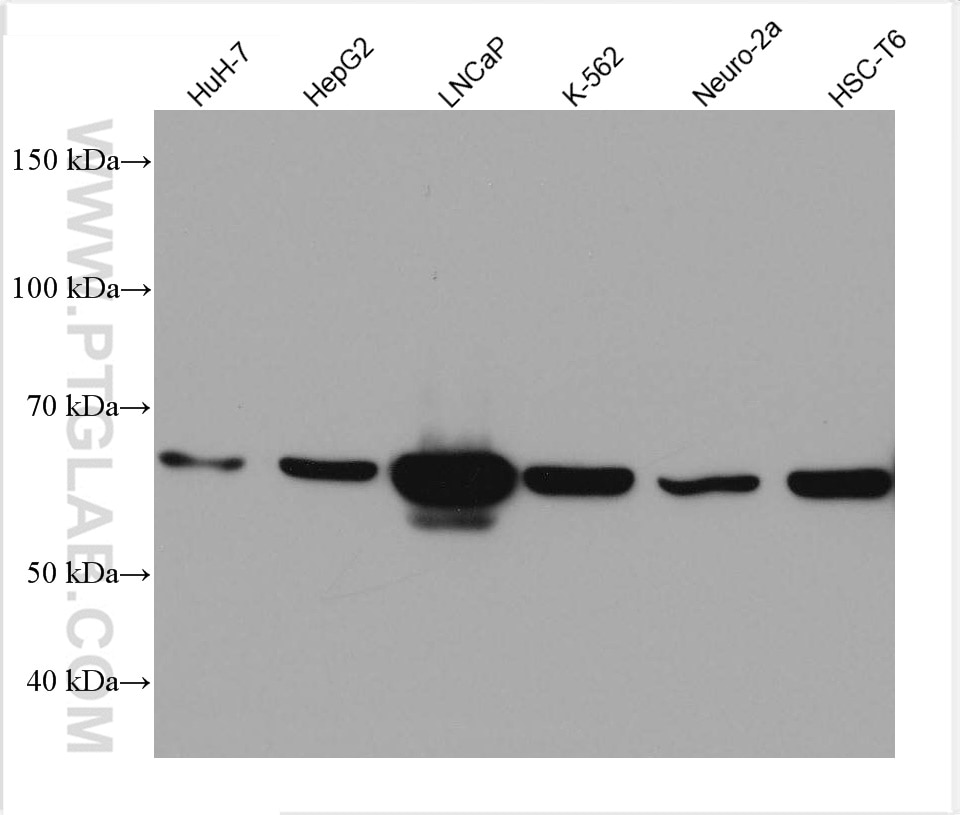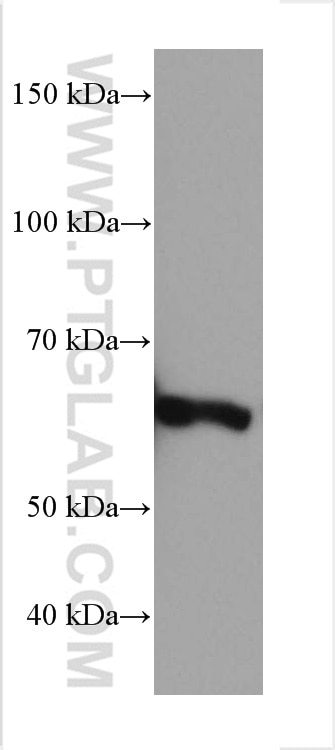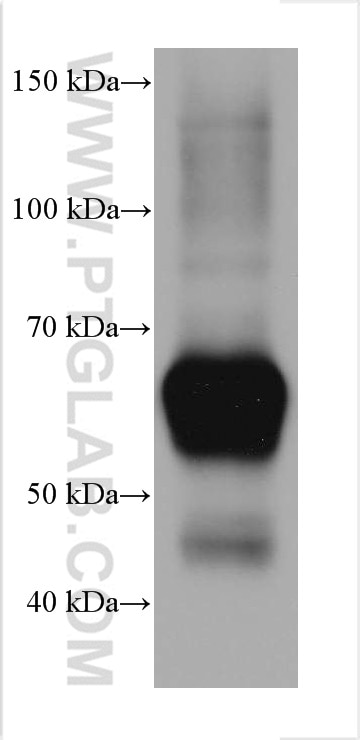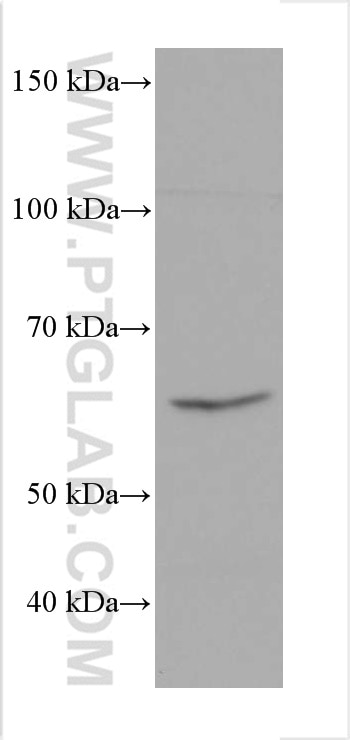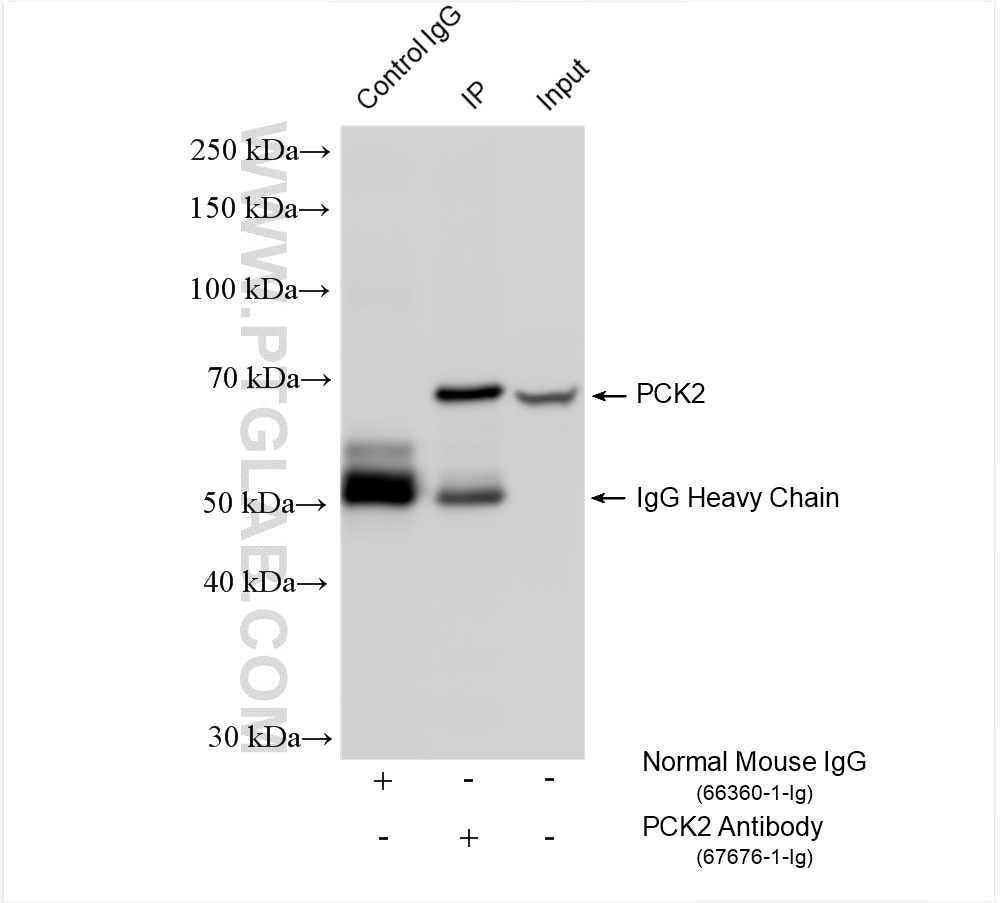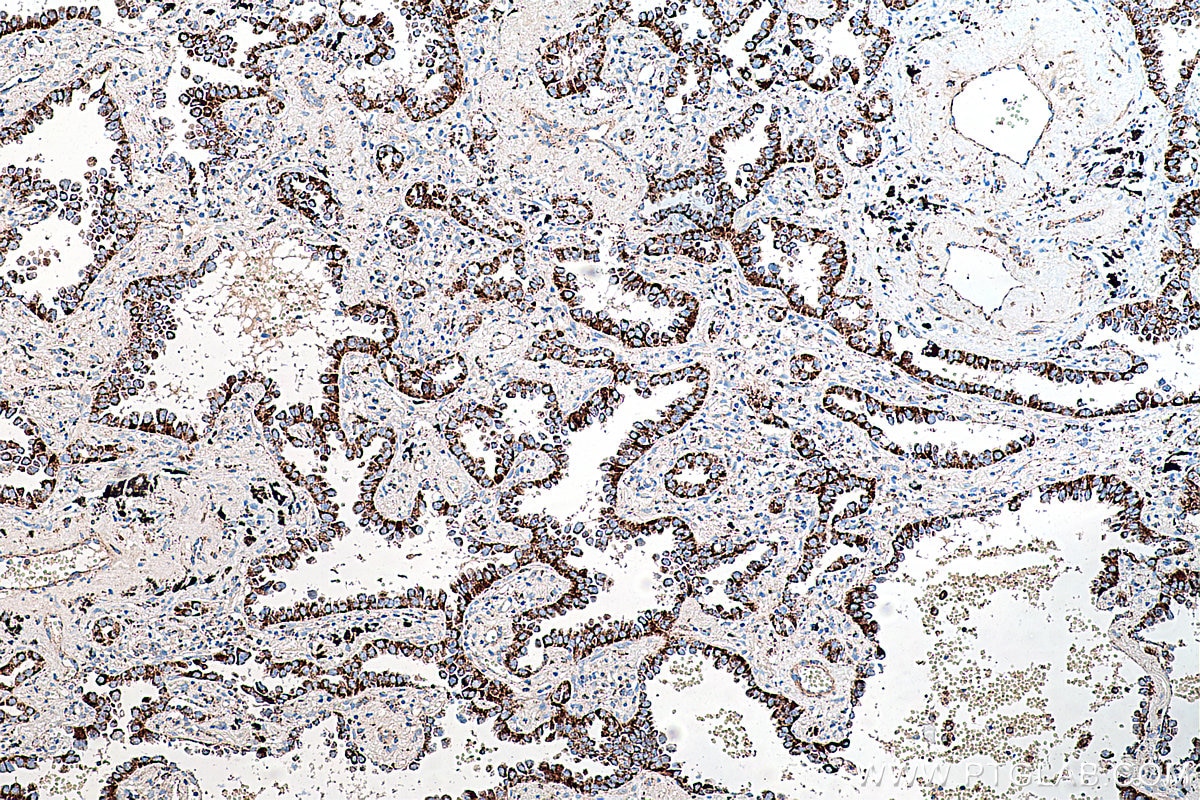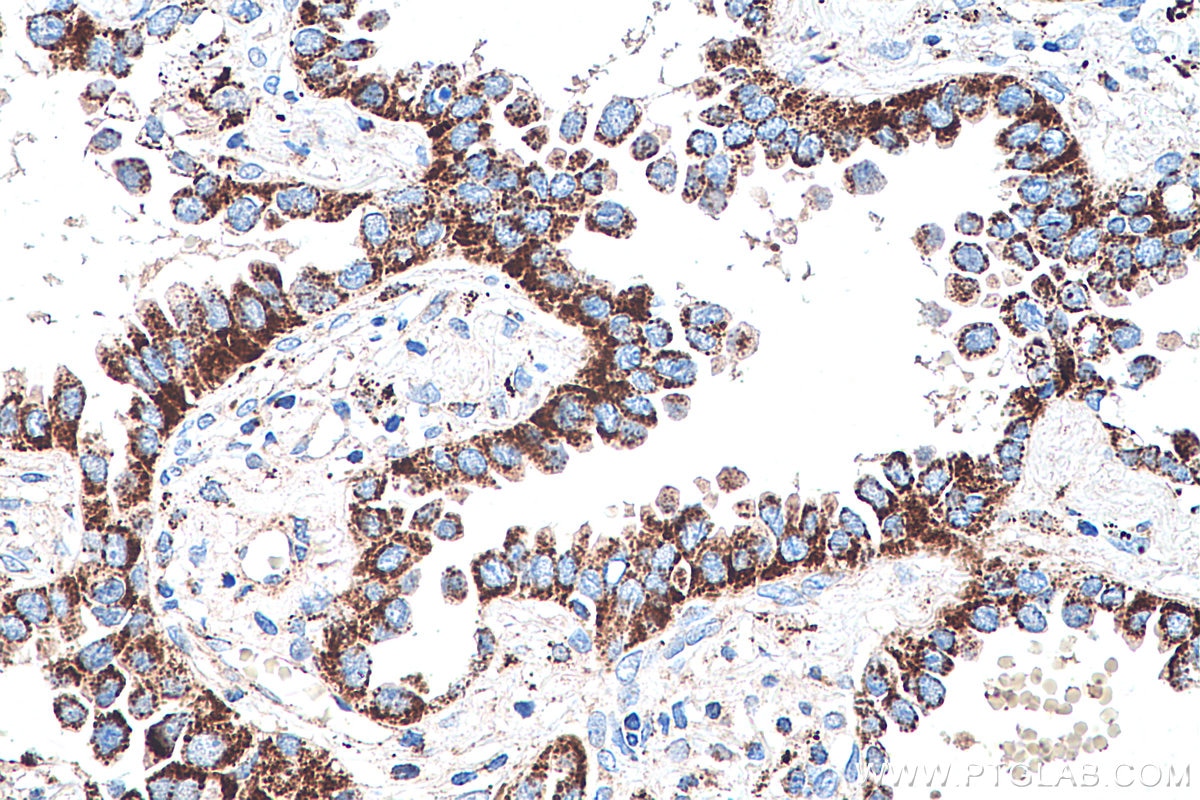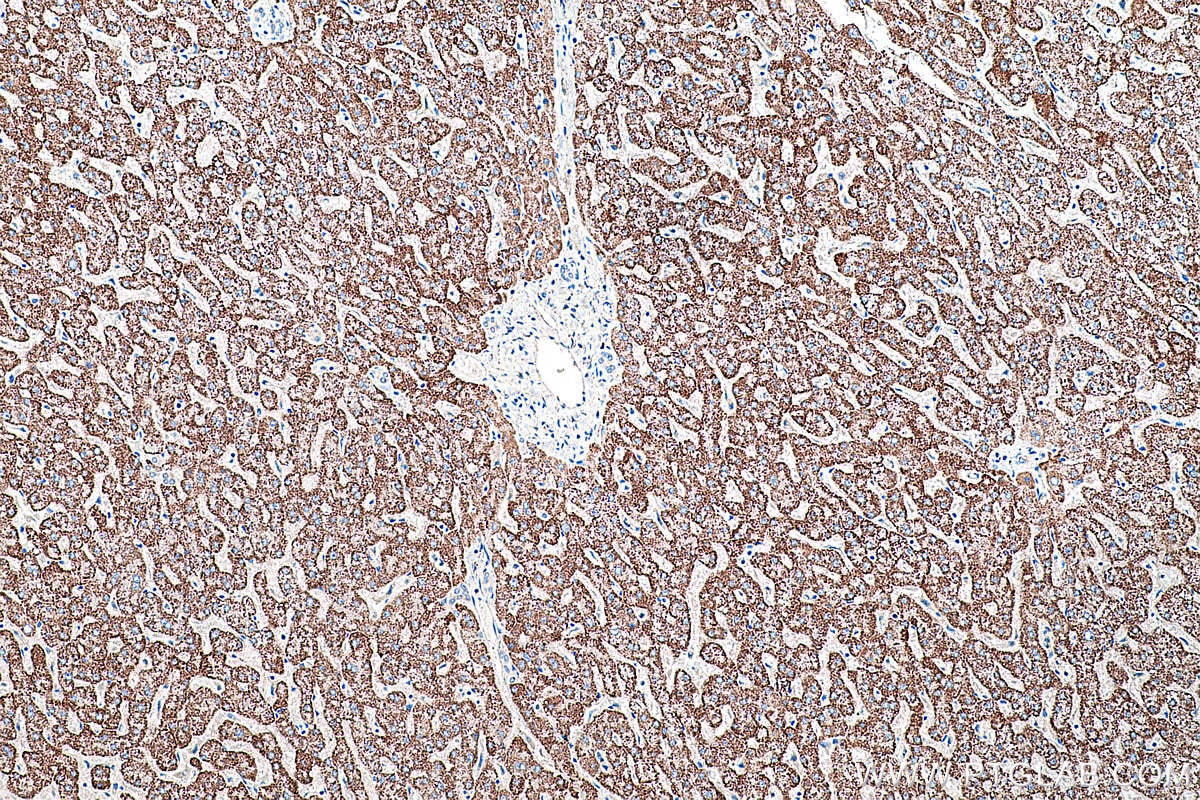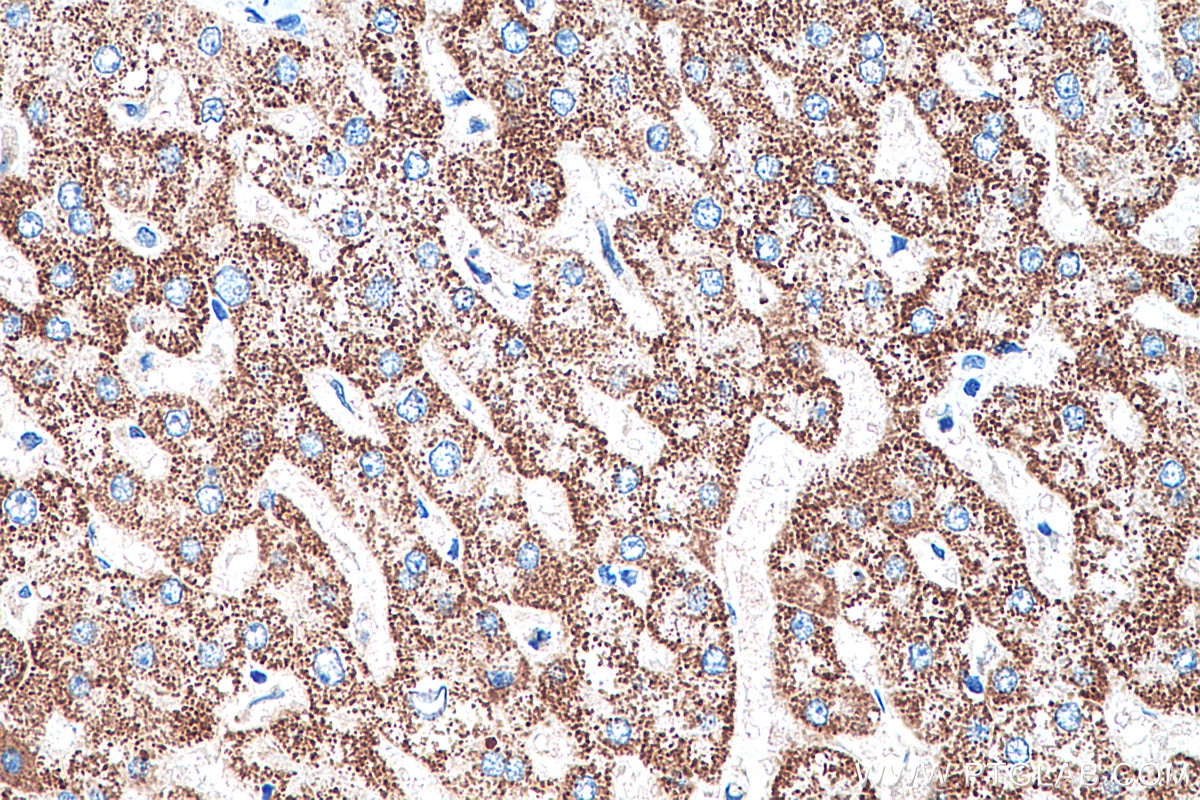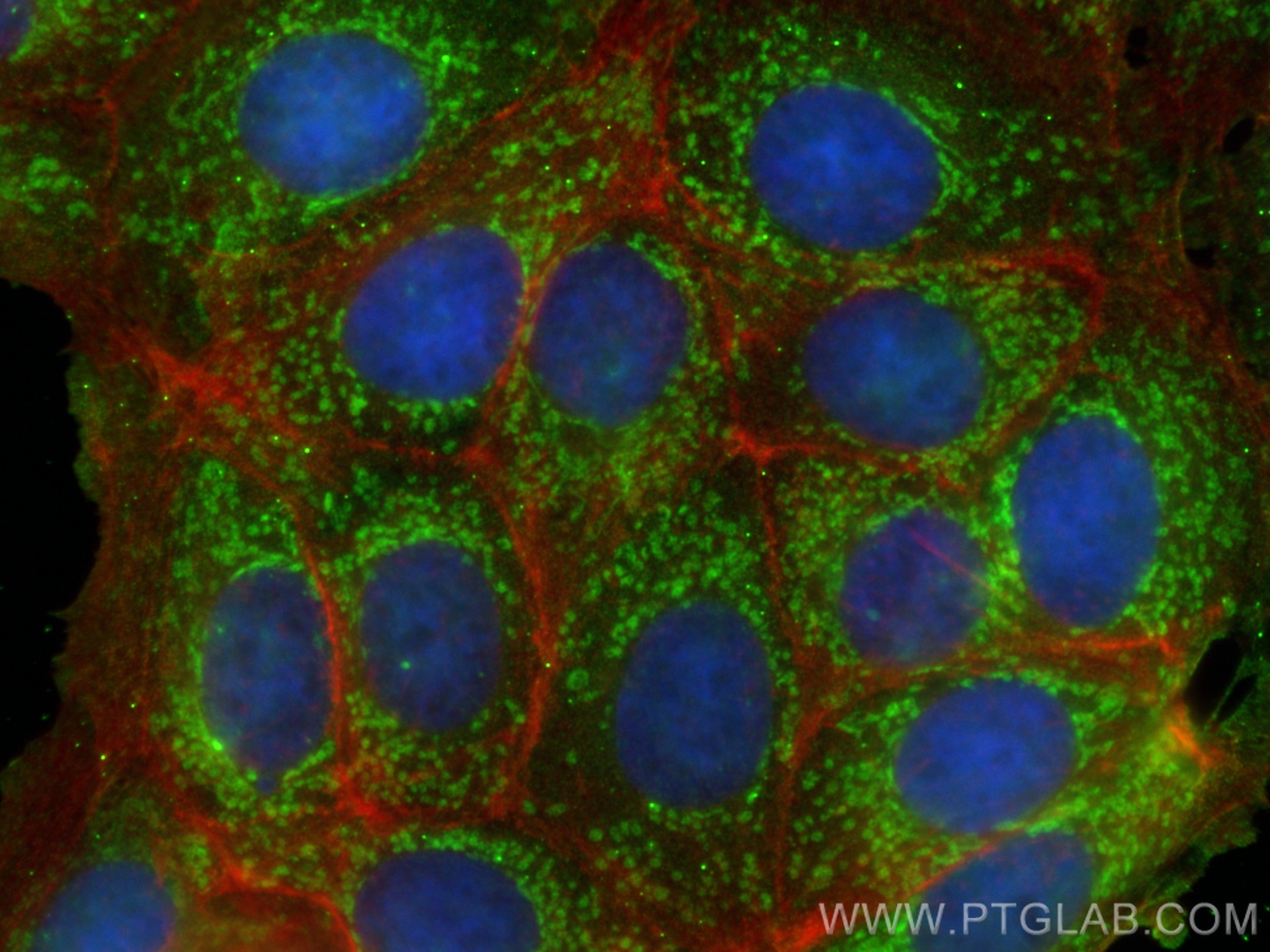Anticorps Monoclonal anti-PCK2
PCK2 Monoclonal Antibody for WB, IHC, IF/ICC, IP, ELISA
Hôte / Isotype
Mouse / IgG1
Réactivité testée
Humain, Lapin, porc, rat, souris
Applications
WB, IHC, IF/ICC, IP, ELISA
Conjugaison
Non conjugué
CloneNo.
1B3F1
N° de cat : 67676-1-Ig
Synonymes
Galerie de données de validation
Applications testées
| Résultats positifs en WB | cellules HuH-7, cellules HepG2, cellules HSC-T6, cellules K562, cellules LNCaP, cellules Neuro-2a, tissu hépatique de lapin, tissu hépatique de porc, tissu hépatique de rat |
| Résultats positifs en IP | cellules HepG2, |
| Résultats positifs en IHC | tissu de cancer du poumon humain, tissu hépatique humain il est suggéré de démasquer l'antigène avec un tampon de TE buffer pH 9.0; (*) À défaut, 'le démasquage de l'antigène peut être 'effectué avec un tampon citrate pH 6,0. |
| Résultats positifs en IF/ICC | cellules MCF-7, |
Dilution recommandée
| Application | Dilution |
|---|---|
| Western Blot (WB) | WB : 1:2000-1:10000 |
| Immunoprécipitation (IP) | IP : 0.5-4.0 ug for 1.0-3.0 mg of total protein lysate |
| Immunohistochimie (IHC) | IHC : 1:4000-1:16000 |
| Immunofluorescence (IF)/ICC | IF/ICC : 1:200-1:800 |
| It is recommended that this reagent should be titrated in each testing system to obtain optimal results. | |
| Sample-dependent, check data in validation data gallery | |
Applications publiées
| WB | See 4 publications below |
Informations sur le produit
67676-1-Ig cible PCK2 dans les applications de WB, IHC, IF/ICC, IP, ELISA et montre une réactivité avec des échantillons Humain, Lapin, porc, rat, souris
| Réactivité | Humain, Lapin, porc, rat, souris |
| Réactivité citée | rat, Humain, souris |
| Hôte / Isotype | Mouse / IgG1 |
| Clonalité | Monoclonal |
| Type | Anticorps |
| Immunogène | PCK2 Protéine recombinante Ag7021 |
| Nom complet | phosphoenolpyruvate carboxykinase 2 (mitochondrial) |
| Masse moléculaire calculée | 71 kDa |
| Poids moléculaire observé | 68 kDa |
| Numéro d’acquisition GenBank | BC001454 |
| Symbole du gène | PCK2 |
| Identification du gène (NCBI) | 5106 |
| Conjugaison | Non conjugué |
| Forme | Liquide |
| Méthode de purification | Purification par protéine G |
| Tampon de stockage | PBS with 0.02% sodium azide and 50% glycerol |
| Conditions de stockage | Stocker à -20°C. Stable pendant un an après l'expédition. L'aliquotage n'est pas nécessaire pour le stockage à -20oC Les 20ul contiennent 0,1% de BSA. |
Informations générales
PCK2(phosphoenolpyruvate carboxykinase [GTP], mitochondrial) is also named as PEPCK2, PEPCK-M and belongs to the phosphoenolpyruvate carboxykinase [GTP] family. It catalyses the irreversible conversion of oxaloacetate to phosphoenolpyruvate, an important initial step in hepatic gluconeogenesis. Defects in PCK2 are the cause of mitochondrial phosphoenolpyruvate carboxykinase deficiency (M-PEPCKD). It has 2 isoforms produced by alternative splicing with the molecular weight of 71 kDa and 48 kDa.
Protocole
| Product Specific Protocols | |
|---|---|
| WB protocol for PCK2 antibody 67676-1-Ig | Download protocol |
| IHC protocol for PCK2 antibody 67676-1-Ig | Download protocol |
| IF protocol for PCK2 antibody 67676-1-Ig | Download protocol |
| IP protocol for PCK2 antibody 67676-1-Ig | Download protocol |
| Standard Protocols | |
|---|---|
| Click here to view our Standard Protocols |
Publications
| Species | Application | Title |
|---|---|---|
Food Funct Black bean husk and black rice anthocyanin extracts modulated gut microbiota and serum metabolites for improvement in type 2 diabetic rats. | ||
Front Pharmacol Berberrubine, a Main Metabolite of Berberine, Alleviates Non-Alcoholic Fatty Liver Disease via Modulating Glucose and Lipid Metabolism and Restoring Gut Microbiota | ||
Heliyon Tanshinone IIA attenuates fluoride-induced spinal cord injury by inhibiting ferroptosis and inflammation | ||
FEBS Open Bio FAM136A depletion induces mitochondrial stress and reduces mitochondrial membrane potential and ATP production |
